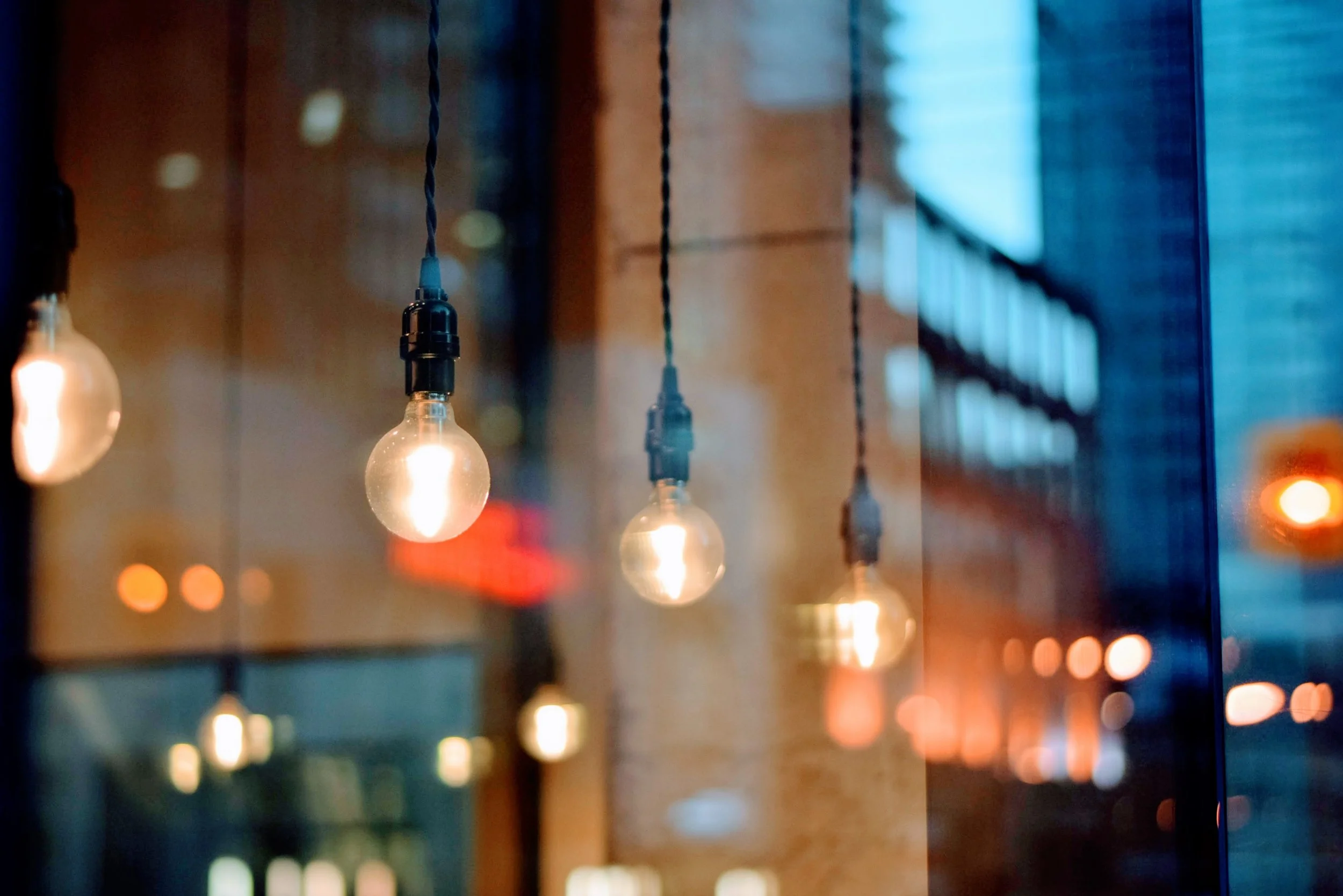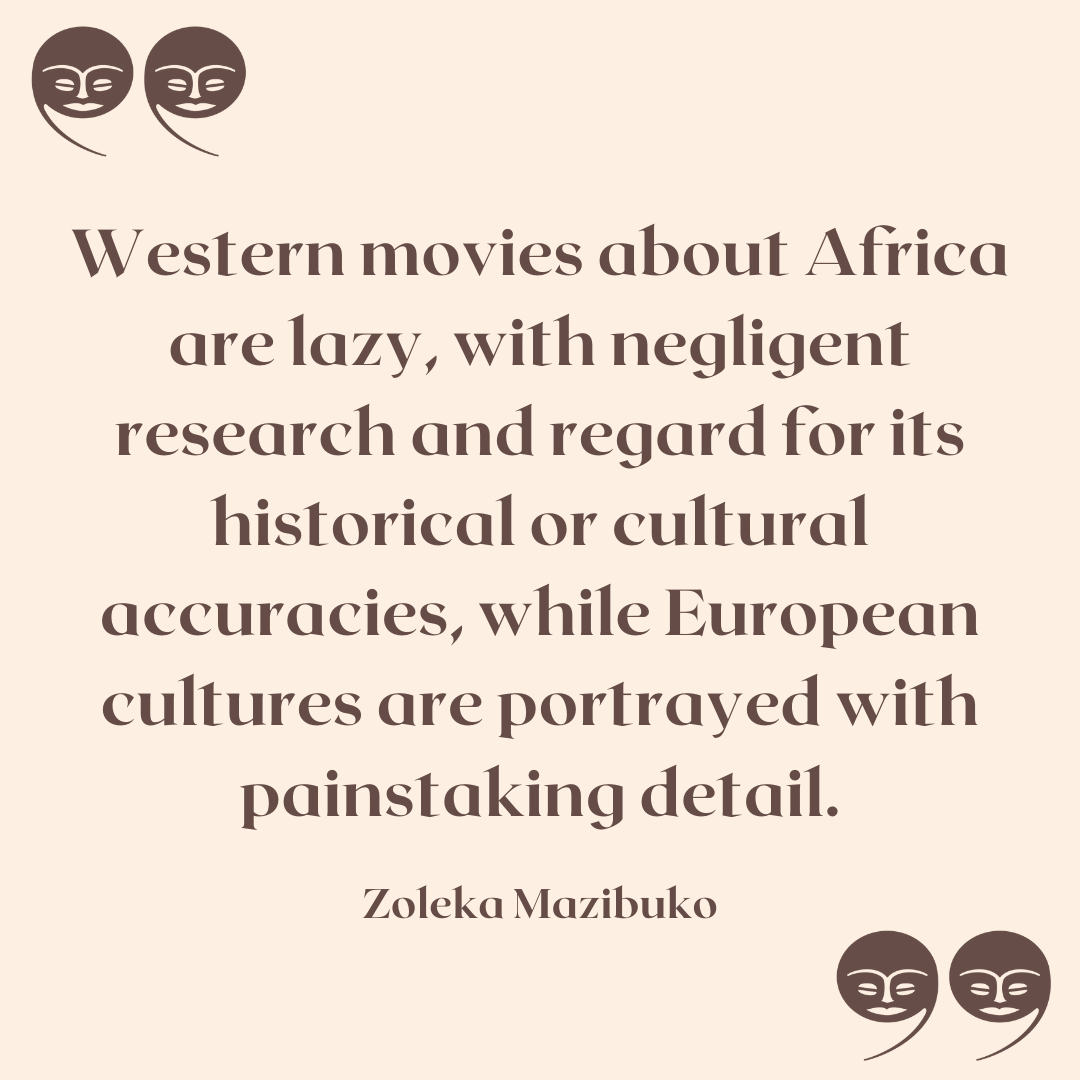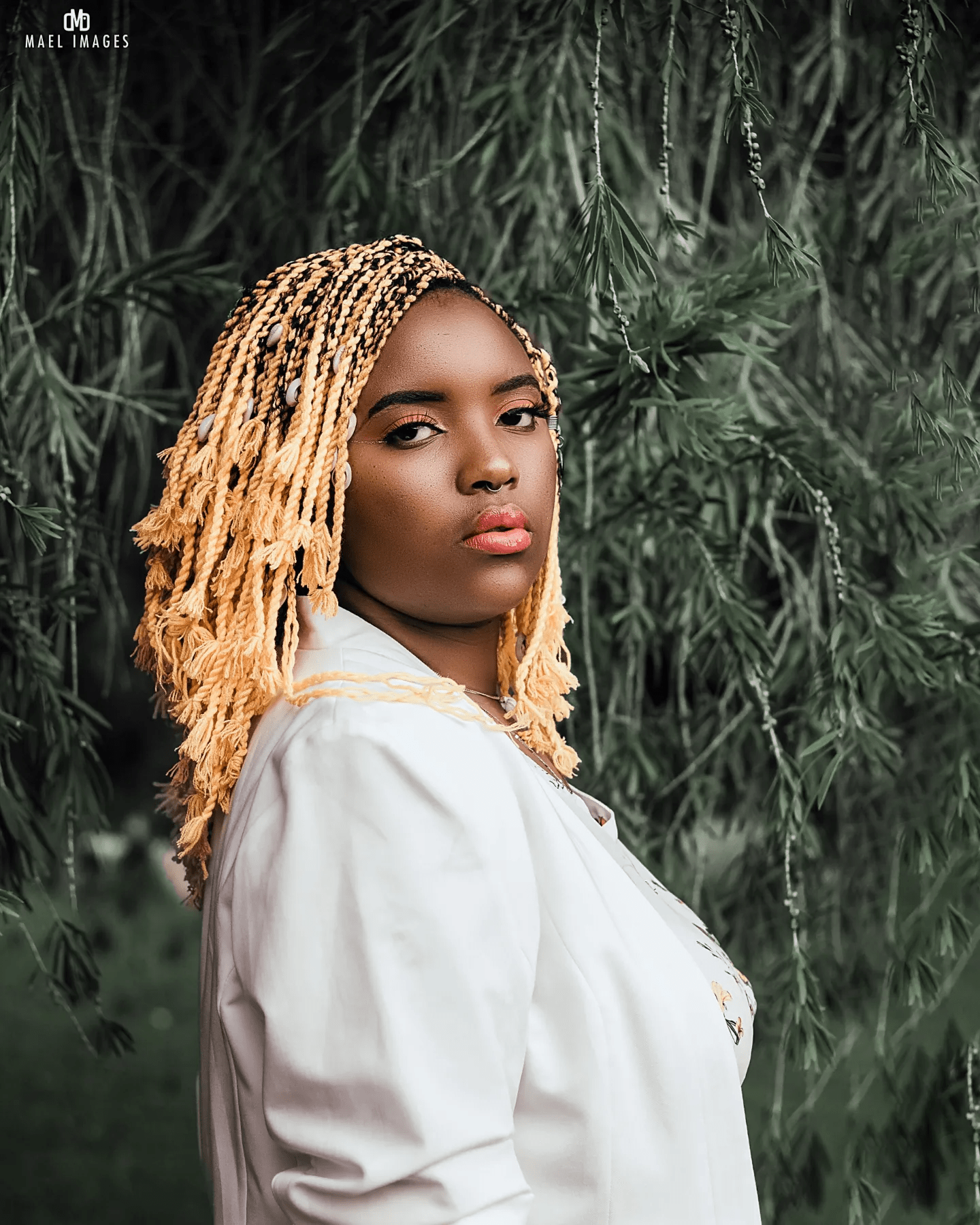“Freedom is what I truly look for as a human being” – Chanceline Mevowanou (Benin)
/My name is Chanceline Gwladys Wangninan Mevowanou, my friends and family call me “Chance”. I’m from Benin and I’m 25 years old. I grew up in Avankrou, a town in southern Benin in Ouémé department. I currently live in Cotonou, not far from the beach. I love the beach. Watching the sea helps soothe my anxiety, shut down the noise in my mind and clear my thoughts.
I like chill evenings and parties. Now you know that you must invite me to your parties. I love scented candles, wine, backpacks, and sneakers. I wear sneakers with almost every outfit (don’t call the Fashion Police, please 😄😂).
Freedom is truly what I look for as a human being. My goal is to grow, to fulfil myself on my terms, and to thrive in environments where I can live a dignified and nurtured life. I want to exist freely. It’s for that freedom that I am a feminist first and a feminist activist second. I want to be free, free from the patriarchy and all the other systems of oppression that feed it. That’s why I’m in action. I personally and collectively want to contribute to the dismantling of systems that brainwash women, hinder their freedom, and destroy their humanity.
I had my first feminist awakening within my family and my village. My mother told me how my father decided to only send the boys to school and to let the girls take care of the house chores. I remember seeing my father hitting my mother in front of us during an argument and throwing her belongings outside. I also clearly remember how my mom stayed after experiencing this violence. I heard her say that she would stay with her children no matter what. She said that she would put up with anything.
In my village, I saw the injustice that children, girls, and women particularly endured, and still endure, repeatedly. I remember the stories of women who were frequently beaten by their spouses for one thing or the other; of families who abused their children, using beatings as well as demeaning language to supposedly educate them. I also experienced this. My parents and the “grown-ups” would beat us to teach us manners. I was repulsed by this “violence” we were raised in. This violence is doubled for girls. Because they are girls. I saw many girls from my village quit school. They were sent back home or forced into marriage because of early pregnancy. My father also threatened to send us back home if one of us became pregnant without graduating high school. I was constantly afraid. When I first had my period, my parents almost took me to the hospital to check if I was still a virgin. I strongly believed that we could be raised differently and that they could talk to us. I felt a lot of anger regarding these treatments.
My parents taught me that if I became a strong woman, no one would dare hit me or humiliate me as they did the other women, girls, and children. They told me that if I had a job, money, a house, and other possessions, no man would disrespect me or lay a hand on me. They said that going to school was the path to becoming such a strong woman. I would also see women on TV and say that I would be like them: free to express myself. So, I saw school as a pathway to freedom, the path to stop experiencing injustice. I had this theory: the more kids would go to school, especially girls, the more they would be prepared to react to injustice and not experience it silently. That was what I believed in. That’s why I studied hard in school.
At school, I didn’t simply study. I did everything to be among the best students and to be rewarded for it. To show people that girls are strong. I wanted to stand out because of my excellent grades, my insightful answers, and my ability to speak my mind and speak in public. I also got involved in extracurricular activities that would allow me to strengthen my self-confidence. I was a member of the middle school drama and dance groups. I developed a passion for poetry and slam poetry. I viewed these groups as a place to talk with my peers about things I couldn't discuss at home. I started writing about the importance of sex education for children as well as fighting against violence against girls and women. I practiced thinking, brainstorming, coming up with ideas, writing, and initiating conversations with peers.
Writing and slam poetry were my first tools for action. Then there were the scenes we had to perform on stage. I noticed that after each of our performances, whether it was in class or during culture day, people would ask questions and talk about these issues and a conversation would arise. So, I continued. Writing, theatre and slam deeply changed me as a person, liberated my thinking and my voice, and pushed me down a path of free and unorganised community organising. They showed me how I could begin to get into action without waiting to become a strong woman.
In the 11th grade, Peace Corps volunteers came to our school to run a girls’ empowerment program. I was in the selection of the best girls who should participate in this program, and then I was granted a scholarship for the program. We were given training and exempted from paying school fees for two years. We were two girls on a scholarship. With the volunteers and the two teachers delegated by the school to run this program, we followed several training courses on girls' leadership, gender, puberty management, and role models. This training strengthened my abilities, my beliefs, and my will to act for the rights of girls and children.
I started moderating school clubs. In the first girls’ clubs that I ran, we focused on what we experienced as girls, women’s realities, the other students around us, and how many people, us included, had to discuss it to find answers together. I believe that when something’s wrong in our communities, we ought to talk about it and have conversations! Because we won’t find solutions without conversations, the tool that allows us to understand why and how children, girls, and women are affected.
That was the mindset I was in after graduating high school: mobilising and gathering girls and boys, women and men around issues that affect us and fuel conversations that will lead to action. I went back to my village to set up initiatives and people - upon seeing me doing this - called me an activist and a feminist. I carried these two hats for a long time before deciding to understand what they meant. I had to understand and then build what being an activist and a feminist meant for me. I think that’s what I’m currently doing. Along the way, my understanding of inequalities evolved and is still evolving. The injustices that women face in our societies are mere symptoms and expressions of bigger oppressive systems. These systems influence our lives, our thoughts, our beliefs, our norms, our actions, our policies, the economy, and our societies’ growth… And we can resist, challenge them loudly and dismantle them. No woman will ever talk too much or write too much in our societies as they are today. Let’s raise our voices and liberate our thoughts and our actions.
I found Eyala at a time when I was exhausted from being the young feminist activist working in an NGO where her feminism might not grow. I remembered that I had to seize opportunities to keep on being part of conversations for the radical liberation of every African girl and woman. I want to take part in important conversations for my generation and amplify the voices and actions of African feminists. In self-preservation and sisterhood. I want to be where we discuss and act together to dismantle the patriarchy. That's why I joined Eyala. Join us on our journey as a feminist collective.











